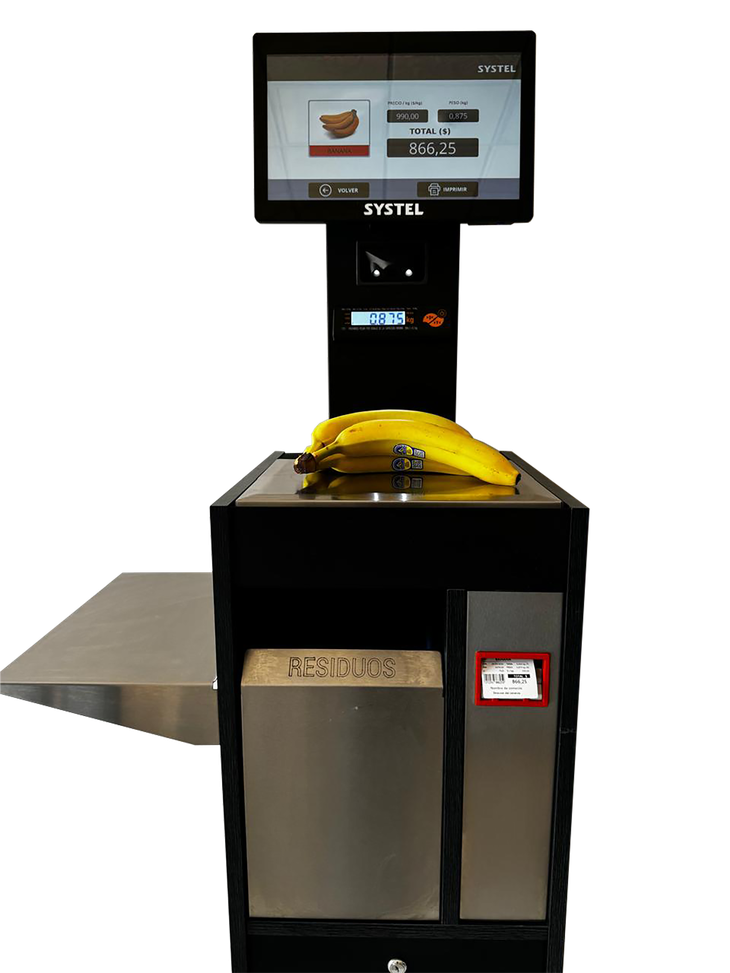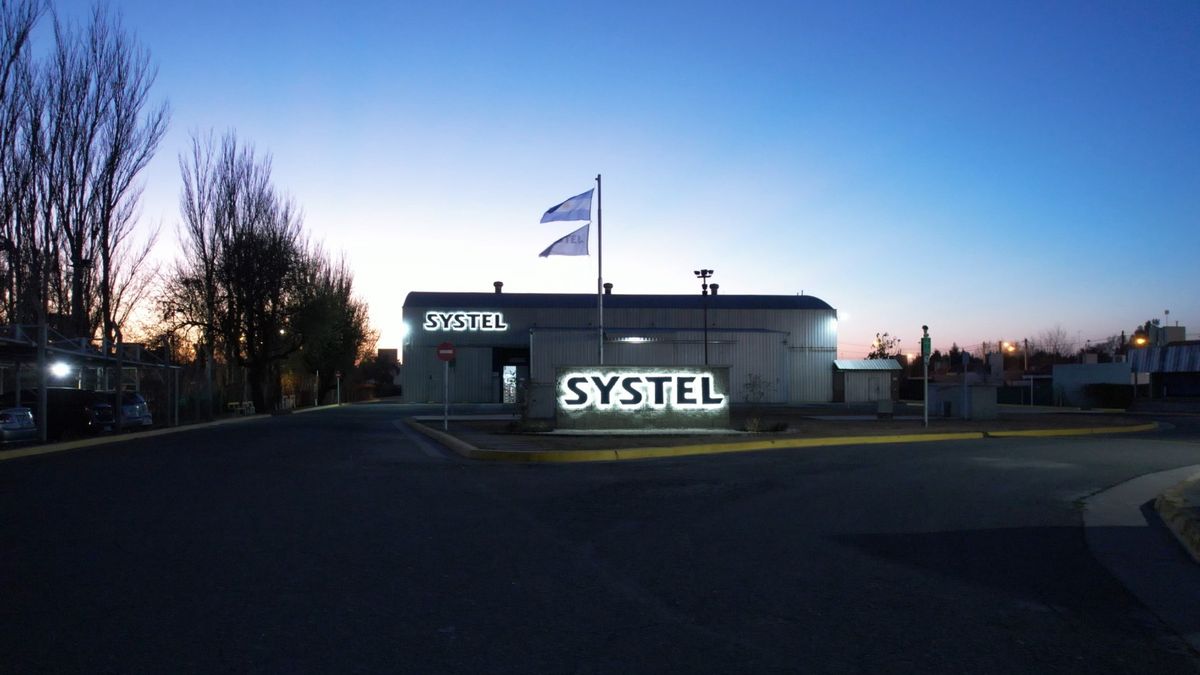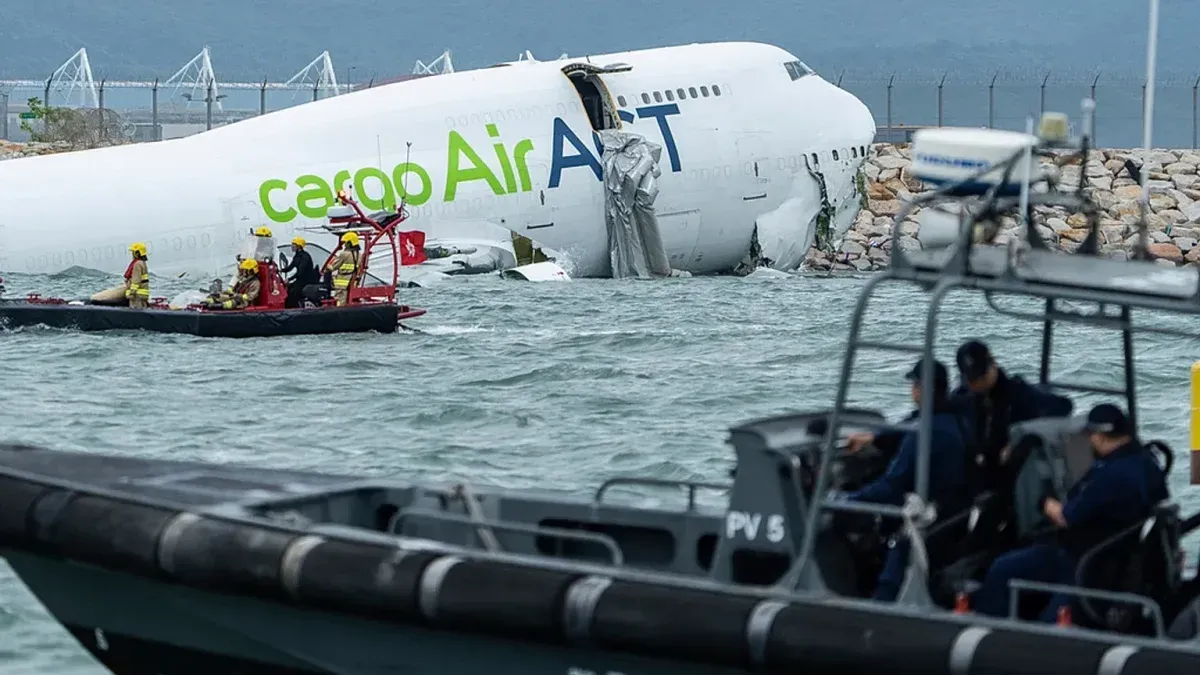The vast majority of the staff is in Córdoba, where the production plant and headquarters are located. It also has offices, warehouses, administration and commercial area in Munro, province of Buenos Aires. In addition to its own offices in San Pablo and Mexico City.
In an interview with ScopeMonea reviewed the origins of Systel, explained how the great technological leap was that allowed it to lead the national market and be a reference in commercial weighing, cutting and labeling. Then, how it came to export to almost the entire region.
In addition, Monea presented the new great milestone in the history of the company that this year blows out the 32 candles: the first scale in the country equipped with Artificial Intelligence capable of automatically recognizing a product at the time of weighing it.
The smart scale will be exported to all Latin American markets where the company is present. At this stage, has already received approval of the INTI in Argentina and the control organizations of Brazil and Mexico.
“The company was born in 1992 by the founder and sole shareholder José Luis Chico Varela. We are turning 32 years old. In the beginning it was not a scale factory, but rather it started as a software developer, for the integration between supermarket scales and the ERP systems they used to manage their operations,” summarizes Matías Monea.
Matias Monea, CEO Systel.jpg
Matías Monea, CEO of Systel.
Journalist: What was the process like from that time to the present?
Matías Monea: The founder started producing in a garage, because there were very few scales that were manufactured at that time, there were only 4 models. Now he is over 40. José Luis, or Pepe as we call him, is an electronic engineer and at the beginning of the firm his wife worked for some years in the commercial area.
At that time the owner saw the opportunity to improve the equipment in terms of scales that were operating at that time in Argentina and a few years later he began to develop the first Systel electronic scales.
Over time it became the leading company in Argentina. And the second largest in Latin America.
They no longer work in the company, but are in frequent contact with management. The people who manage the company today are all professionals, there are no family members. This has to do with the fact that it is a small family. José Luis’s only son is 12 years old.
Q: How was that growth achieved?
MM: First of all, because of the work and perseverance of the founder, who put the business on his shoulders. He was the one who designed everything since he is an electronic engineer. He was the one who formed the first foundation of the company whose heart was and continues to be the R&D area. Today 20% of the staff works in that area, research and development.
Permanent innovation is the key to this growth. Being able to see what equipment was needed in each of the markets, both in terms of features and functionality, and producing equipment at a good price with a very good design and easy to use. We know that the path is that way. We invest heavily in innovation and technology. And we take advantage of everything we learn in foreign markets to continue positioning ourselves strongly in our country.
Q: When did you start exporting?
MM: That was decided on the fly, in the sense that the first market to be attacked was Argentina. From there and with the growth of the company, we began to participate in international exhibitions to show the equipment, analyze what equipment was required abroad, since each country has its particularities and we have to adapt. And little by little it happened.
It began to be exported to Uruguay, Chile, Paraguay, Bolivia. Today we are practically exporting to all Latin American countries.. From Mexico on down, almost all countries. And we want to conquer the North as the next step.
We are now bringing the same focus of innovation to the markets of Brazil and Mexico, which are not easy because we are not as well-positioned a brand as we are in Argentina. We have many competitors abroad, who, like us, are betting very heavily on technology and innovation.
Q: When did you make the big technological leap?
MM: In 2013, a very important milestone occurred, which was the incorporation of a robot with which we can automatically insert all the components of an electronic board. It is the heart of an electronic equipment. It is the only robot of its kind in Latin America.
In addition, we are constantly automating the plant. Today we have a model plant that has nothing to envy of one from the United States or Europe at a technological level. We work under factory 4.0 concepts, and we have several collaborative robots. It was a constant path of trying to be on par with the number one companies worldwide.
Q: What was the product that opened the door for you to export?
MM: Regional expansion occurred from the production of weighing instruments. Especially with the mid and high range that we have to offer. It was also since 2013, when Systel released its first scale with labeling machine, that’s when we started exporting equipment.
The particularity of Latin America is that there are many countries that do not have strong legislation like the one that exists in Argentina, Brazil and Mexico, where products have to be approved and go through a long path prior to sale. They control that the equipment responds to commercial loyalty practices, and so on, where it is necessary to guarantee that the weight and amount indicated on the scale are correct.
There are few countries in the region where this industry is protected in this way. Therefore, there are many countries where one competes with very cheap Chinese products in the low range and that is why it is difficult for us to enter. Therefore, we go with the medium and high range where we are more competitive.
Outside of scales, we have other product lines that we manufacture in the country such as the cold cuts. And that is also being sold successfully outside Argentina.
Q: What proportion of imported components are in your products?
MM: In normal times in which there is freedom to import inputs, the mix is usually between 65% and 70% imported inputs and the rest domestic inputs. In Argentina there are no microchip or resistor factories, such as electronic board components. On the other hand, everything that is cabinets and so on is injected here. It is more economical and advantageous. Logistically it would not make sense to bring plastic injected casings from abroad.
Q: Were you affected by import restrictions?
MM: We began to suffer from this starting in August 2023. The SIRA system and approval via the central bank of the outflow of dollars still existed. And it was noted after the PASO that there was an important restriction on obtaining dollars to be able to import inputs. We had to do quite complicated engineering to not stop the factory and maintain operations.
Q: How is this situation now?
MM: Today the outlook is much calmer, although there are companies that were left with debts abroad, especially those prior to December 13, 2023, for which the Bopreal bonds were created. But today operations have become quite normal for everything that is the normal business of the company. There is the possibility of being able to pay within thirty days and, due to commercial relationships with suppliers that go back many years, we have the possibility of credit.
Q: What is the new scale that works with Artificial Intelligence like?
MM: It is more than just a scale. It is a self-service that solves space issues and facilitates the shopping experience for all types of customers. Our system automatically detects the product by simply placing the bag on the scale. With a camera and an algorithm, the scale detects what the product is and instantly shows you the product on the screen. You just have to touch the print button and the label comes out and sticks on the bag. It is designed especially for fruits and vegetables.
Detect self-service.png

The new “Detect” smart scale.
The system learns as the client weighs. Every time a product is weighed, a photograph is taken that goes to the cloud and is constantly fed back, becoming increasingly intelligent. Product detection is improved with the use of the system.
The equipment that is available today in the country requires the customer to bag the products and place them on top of the scale and then navigate through a menu of options on the screen, whether it is fruit or vegetables, then search by alphabet for the name of the product. . On the other hand, with our devices with Artificial Intelligence everything is simpler and more intuitive.
Q: Is this the first time you have incorporated Artificial Intelligence?
MM: At the equipment and hardware level, it is the first experience we have in AI. But we have other developments in the pipeline waiting to be launched in the short and medium term.
On the other hand, we incorporated AI a few years ago to support some of the processes. Fundamentally in R&D and production.
Q: How do you put together your commercial strategy?
MM: We have an innovation committee that meets quite frequently and we see what is being done in the world and what technology could eventually be replicated in our industry.
The idea of incorporating artificial intelligence and automatic image detection was born approximately two years ago in that committee. and we ended up hitting the nail on the head in something that is currently booming worldwide, although there are companies that unveiled their first equipment last year. But they were prototypes. So today the scales that work well like ours started at the beginning of this year, which means we are very close to very large companies in Japan and Germany. That was the origin of our current scale or “detec” solution.
Q: What competition do you have in the country with this product?
MM: This type of equipment does not exist in the country. There is nothing available. We are the first company to do it. In Argentina, having to go through a homologation process, it is not so easy to sell it here to a company that is not in the country. They have to go through a process both at the INTI and at the Ministry of Commerce. And they also have to have a minimum after-sales structure, which would also require these companies to set up shop in Argentina tomorrow.
Abroad, they are available, at prices around $5,000. There are large companies in Japan and Germany that began marketing these scales at the beginning of this year. We are able to provide them for half that price. Therefore, our expectation is to also be able to sell it outside of Argentina.
Source: Ambito
I’m a recent graduate of the University of Missouri with a degree in journalism. I started working as a news reporter for 24 Hours World about two years ago, and I’ve been writing articles ever since. My main focus is automotive news, but I’ve also written about politics, lifestyle, and entertainment.




